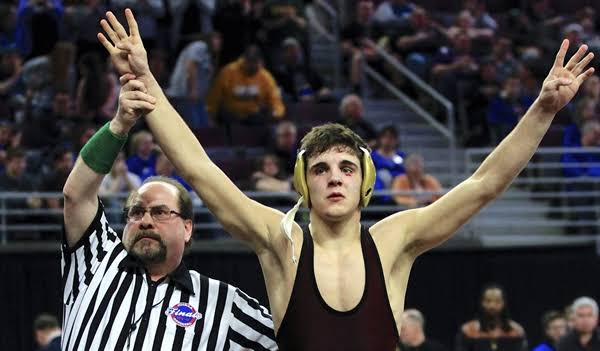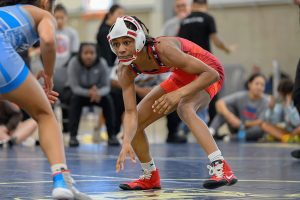
Heartbreaking news: I’ll not wrestle again said by Michigan high School great wrestler, Lincoln Olson who has been abused by their coach…
**”I’ll Not Wrestle Again,” said Michigan High School Wrestling Great Lincoln Olson, Who Has Been Abused by His Coach**
In a shocking and emotional revelation, Michigan high school wrestling legend Lincoln Olson announced that he would never step onto a wrestling mat again after enduring years of mental and emotional abuse from his coach. Olson, who had long been recognized as one of the most promising wrestlers in the state, shared the heart-wrenching details of his experience in a public statement, leaving the wrestling community in shock and disbelief.

Lincoln Olson’s decision to walk away from the sport that he had dedicated most of his life to came after months of growing pressure and distress caused by his coach’s behavior. Known for his intense discipline and commitment to the sport, Olson had once seen his coach as a mentor and a driving force behind his success. However, over time, the relationship soured, and what began as strict coaching evolved into emotionally abusive behavior that ultimately took a toll on Olson’s mental and emotional well-being.
The abuse started with what appeared to be small, isolated incidents: harsh comments after a loss, intense verbal reprimands, and comments that seemed to diminish Olson’s self-worth. However, over the course of several seasons, this treatment escalated. Olson described how his coach often belittled him in front of teammates, used derogatory language, and even humiliated him during practices. What was once constructive criticism turned into a barrage of insults that left Olson feeling worthless and drained of his confidence.
In his statement, Olson confessed that the physical toll of the sport was not nearly as grueling as the emotional and mental abuse he endured from the one person he had trusted to guide him through his high school wrestling career. He recalled how, at times, the coach’s behavior would cause him to question his love for the sport that had once been his escape and passion. What was supposed to be a supportive environment for growth and development had become a hostile and toxic space.
For Olson, the breaking point came during his senior year when the abuse reached an all-time high. After a particularly devastating loss, the coach’s public humiliation left Olson feeling like he had no choice but to leave the sport that had shaped so much of his life. In a tear-filled moment, Olson announced that he would not compete again and would not allow the coach’s behavior to rob him of his love for wrestling any longer. His decision to walk away was not just about quitting the sport but also about reclaiming his mental health and well-being.
Olson’s story has ignited conversations around the culture of high school sports, particularly wrestling, and the responsibility coaches have in ensuring that their athletes’ mental and emotional health is prioritized. While the physical demands of wrestling are well-known, the emotional and psychological pressures often go unnoticed, and Olson’s brave decision to speak out serves as a stark reminder of how toxic coaching can have long-lasting consequences.
In the wake of Olson’s announcement, many former athletes have come forward, sharing similar experiences of mistreatment and abuse at the hands of coaches who were more focused on winning than on fostering a positive and supportive environment for their athletes. Olson’s courage has sparked a movement to hold abusive coaches accountable and demand better standards for the treatment of young athletes in competitive sports.
Lincoln Olson’s decision to never wrestle again is a painful reminder that the true spirit of sportsmanship lies not in the victories on the mat but in the emotional and psychological well-being of the athletes who participate. His courage in sharing his story hopes to inspire others to stand up against abuse, seek help when needed, and remember that no trophy or title is worth sacrificing one’s mental health.





